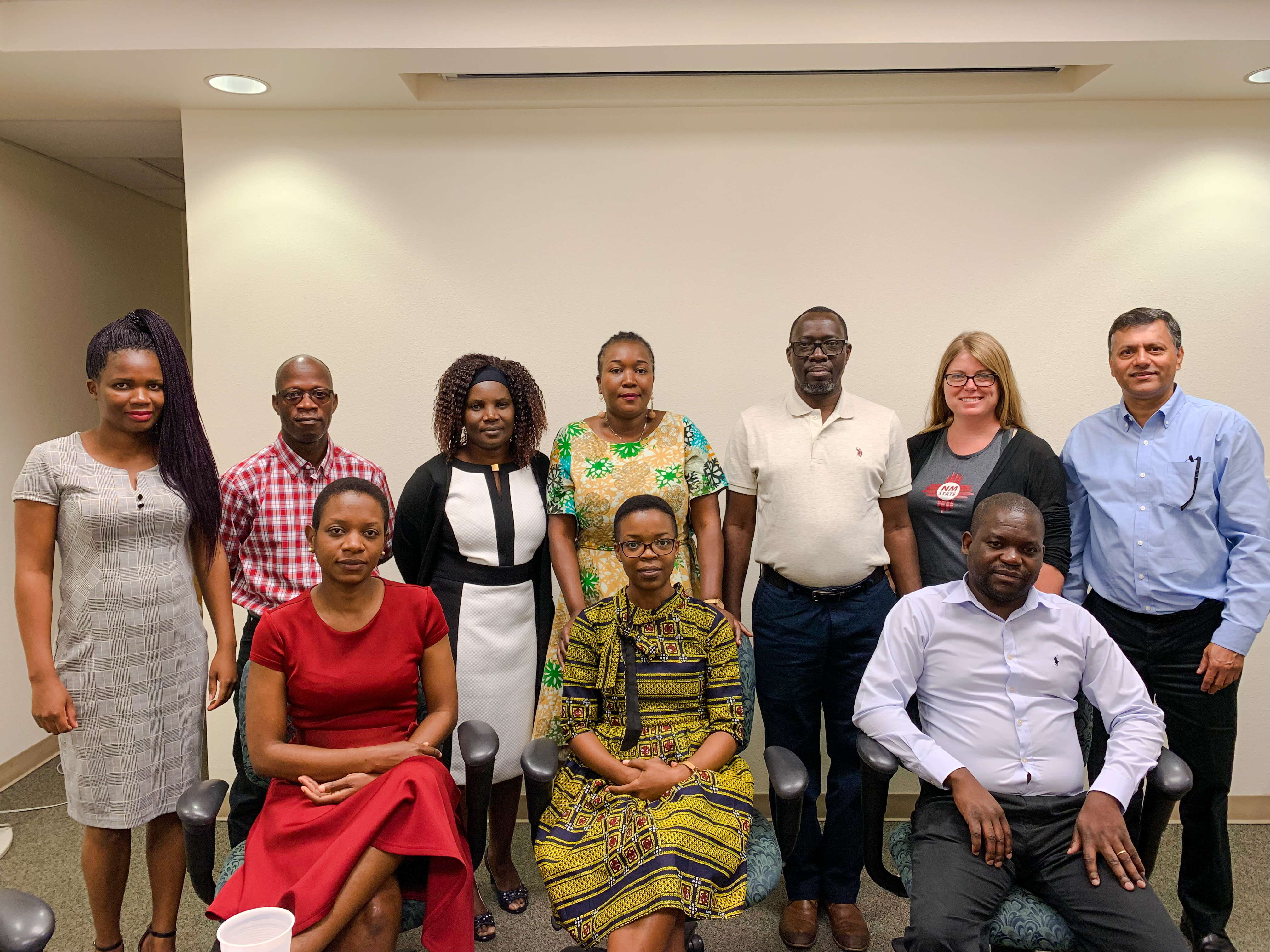NMSU’s College of ACES Global Initiatives Program hosts Cochran Fellows from Malawi

New Mexico State University’s College of Agricultural, Consumer and Environmental Sciences welcomed eight Cochran Fellows from Malawi, located in southeast Africa to participate in a two-week training program on the commodity exchange market.
The training program, funded by the United States Department of Agriculture and the Foreign Agriculture Service (FAS) is designed to provide the Cochran Fellows an understanding of the basic functioning of exchange markets. Cochran Fellows had the opportunity to gain a working knowledge of commodity exchange markets and find out more about the development of commodity exchanges for cotton and grain. They were shown how farm producers and other stakeholders in the United States manage risk using hedging and options trading.
The fellows had the opportunity to look at cotton grading system in Las Cruces and storage facilities in Las Cruces and Clovis. The fellows participated in the online options trading exercise, watched a live auction market, and visited local farm production, processing and storage facilities. Additionally, the trainees traveled to Chicago to see the live commodity exchange market.
Manoj Shukla, Coordinator of ACES Global Initiative program and Aggies Go Global, and professor of soil physics led the program with faculty from Agricultural Economics and Ag Business. He said as soon as the FAS releases specific learning objectives for a new program, he looks within the department of ACES to see which one can handle that type of training. Shukla pointed to the Cochran Fellowship as a program that matches the university’s goals and provides many benefits for NMSU.
“A program like this benefits the university in multiple ways. The first way is that we are highly interested in a global partnership with different institutions and universities, so having people from Malawi definitely gives us a chance with their country for other projects,” Shukla said. “We also look forward to getting students from Malawi to attend NMSU and maybe some of their faculty members will come here to do master’s or Ph.D. or would want to collaborate with us on any number of projects.”
Jacob Nyirongo, a Cochran Fellow who works with the Farmers Union of Malawi said they had the opportunity to see how things function at the micro and macro level when it comes to the market and commodity exchange in the United States.
“We’ve been able to meet people from corporations and people who are doing farming and acts of trading, Nyirongo said. “We visited a livestock trading and we were exposed to how they trade and how livestock is auctioned off and how they look at livestock. We got to visit a corporation and see how it connects with the farmers and how they trade. It’s a great experience to be involved with. And here in the classroom we go over the theories with the professors on how everything works. There’s been a lot of information and hands-on experience.”
Andrew Chamanza who works in the Malawi Ministry of Agriculture, Irrigation and Water said all the information they learned during the program will be taken back and used to assist in developing a similar system in their country.
“There are a few commodities we’re looking at to help develop a structured system in Malawi,” Chamanza said. “We will be developing our action plans that will go towards accomplishing these goals and strategies and linking them to the issues of finances and how farmers participate in this type of formal market.”


